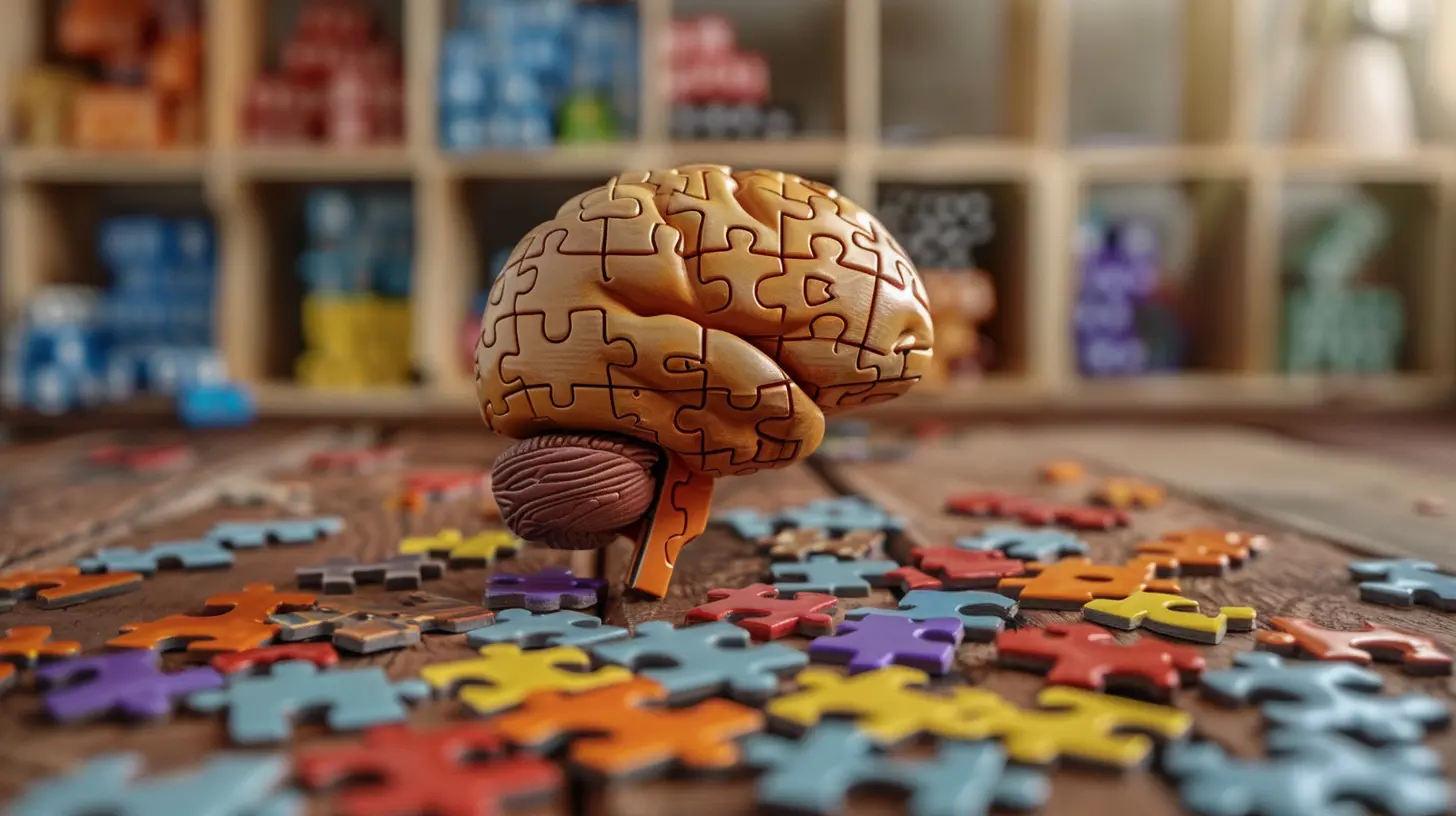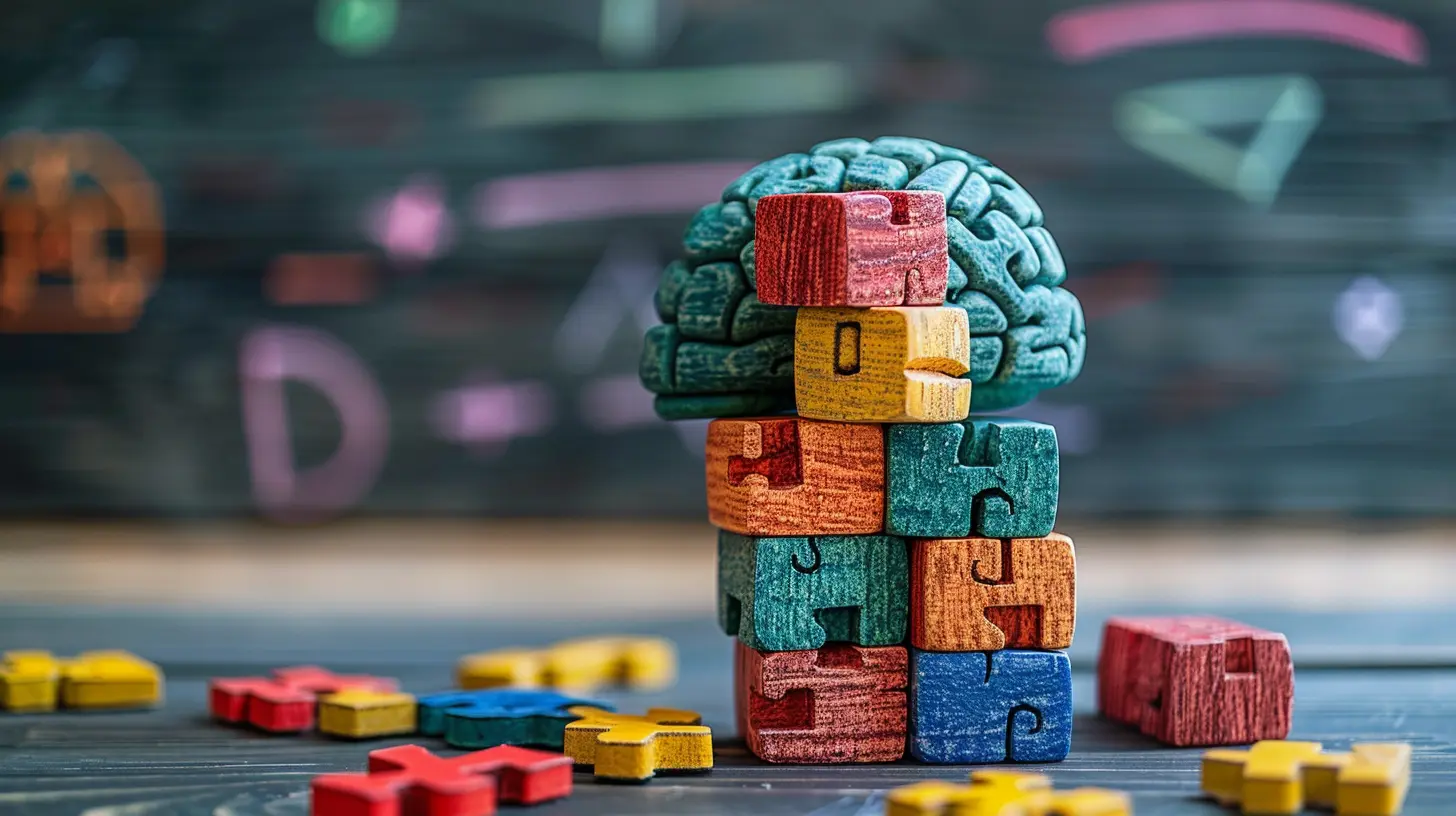Using Puzzles and Brain Teasers to Build Problem-Solving Skills
19 June 2025
Problem-solving is one of the most valuable skills you can develop, whether you're a student, a professional, or just someone looking to sharpen your thinking. But how do you improve this skill in a fun and engaging way? Enter puzzles and brain teasers!
These mind-challenging activities do more than just entertain—they train your brain to think outside the box, enhance cognitive abilities, and boost problem-solving skills. In this article, we'll dive deep into how puzzles and brain teasers can help you become a better problem solver, the different types available, and practical ways to integrate them into your daily routine.

Why Problem-Solving Skills Matter
Problem-solving is at the core of everything we do. From making day-to-day decisions to tackling complex challenges at work or in academics, strong problem-solving skills can set you apart.Here’s why they’re so important:
- Boosts Critical Thinking – Helps you analyze situations logically.
- Improves Decision-Making – Enables you to make better and faster decisions.
- Enhances Creativity – Encourages innovation and thinking outside the box.
- Increases Adaptability – Helps you manage unexpected challenges with ease.
Now, let’s see how puzzles and brain teasers play a role in sharpening these skills.

How Puzzles and Brain Teasers Improve Problem-Solving
Puzzles and brain teasers push your brain to think in new ways. They encourage you to look at problems from different perspectives, break them down into smaller pieces, and develop logical strategies to solve them. Here’s how they help:1. Encourages Logical Thinking
Solving puzzles often requires step-by-step reasoning. Whether it's a Sudoku grid or a crossword puzzle, you need logic to figure out the correct answers. This practice translates to real-life problem-solving where logical thinking helps you make sense of complex situations.2. Enhances Pattern Recognition
Ever noticed how puzzles often have repeating patterns? Recognizing these patterns trains your brain to identify trends and predict outcomes, a skill that’s crucial for tackling challenges in school, work, or everyday life.3. Boosts Memory and Concentration
Many puzzles, especially memory-based ones like matching games, require you to recall information and pay close attention to details. Over time, this improves both your short-term and long-term memory as well as your ability to focus.4. Develops Patience and Perseverance
Let’s be honest—puzzles can be frustrating! But they teach you to be patient and persistent. You learn to try different approaches until you find one that works, a mindset that can be applied to any real-world challenge.5. Encourages Creative Thinking
Some puzzles require you to think outside the box. Take riddles, for example—solving them often involves unconventional thinking. This ability to approach problems in unique ways is a game-changer in problem-solving.
Types of Puzzles and Brain Teasers for Problem-Solving
Not all puzzles are created equal! Let’s take a look at the different types that can help sharpen your problem-solving skills.1. Logic Puzzles
Best for: Enhancing reasoning and analytical skills.Examples:
- Sudoku
- Nonograms
- Logic grid puzzles
These puzzles require you to use deductive reasoning to arrive at solutions, strengthening your ability to think logically.
2. Word Puzzles
Best for: Improving language skills and lateral thinking.Examples:
- Crosswords
- Anagrams
- Word searches
They encourage you to link concepts together, which is useful when brainstorming solutions to problems.
3. Math Puzzles
Best for: Developing numerical problem-solving skills.Examples:
- Magic squares
- Brain teaser math problems
- Number patterns
These puzzles help improve logical reasoning and arithmetic skills, making them great for students and professionals alike.
4. Riddles and Lateral Thinking Puzzles
Best for: Encouraging out-of-the-box thinking.Examples:
- "What has keys but can’t open locks?" (Answer: A piano)
- "I speak without a mouth and hear without ears. What am I?" (Answer: An echo)
These puzzles challenge you to think creatively, often requiring unconventional solutions.
5. Jigsaw Puzzles
Best for: Improving visualization and spatial reasoning.Unlike other puzzles, jigsaw puzzles require you to assemble pieces to form a complete picture. This helps improve your ability to see how individual elements fit into a bigger picture—a valuable skill in problem-solving.

How to Incorporate Puzzles into Your Daily Routine
Now that you know how beneficial puzzles and brain teasers are, let’s talk about how to make them a regular part of your life.1. Start Your Day with a Quick Puzzle
Instead of scrolling through social media first thing in the morning, try solving a Sudoku or crossword puzzle. It’s a great way to wake up your brain and set a productive tone for the day.2. Use Puzzle Apps
There are countless mobile apps for brain training, such as:- Lumosity
- Elevate
- Brainwell
These apps offer a variety of puzzles tailored to improve cognitive functions and problem-solving skills.
3. Make It a Social Activity
Puzzles don’t have to be a solo activity. Play games like chess or Scrabble with friends or family. Group problem-solving enhances teamwork and encourages diverse perspectives in tackling challenges.4. Take Puzzle Breaks at Work or Study Sessions
If you’re feeling stuck on a problem at work or while studying, take a short break to work on a puzzle. It helps refresh your mind and might even give you a new perspective when you return to your task.5. Challenge Yourself Regularly
Keep pushing your limits by trying new and more difficult puzzles. If you’ve mastered easy Sudoku, move on to expert-level puzzles. This gradual increase in difficulty ensures continuous brain engagement and growth.Final Thoughts
Puzzles and brain teasers are more than just fun—they’re powerful tools for developing essential problem-solving skills. They help improve logical thinking, boost creativity, and sharpen memory and concentration. Best of all, they’re a low-pressure, engaging way to challenge your mind.So, why not start incorporating puzzles into your daily routine? Whether it’s solving a crossword over breakfast, playing a game of chess, or tackling a tricky riddle, a few minutes of brain-teasing fun can go a long way in making you a sharper and more effective problem solver.
all images in this post were generated using AI tools
Category:
Classroom ActivitiesAuthor:

Madeleine Newton
Discussion
rate this article
2 comments
Josie McBride
Great article! I appreciate the emphasis on puzzles and brain teasers as effective tools for enhancing problem-solving skills. Engaging the mind in such fun ways is sure to benefit learners immensely!
September 24, 2025 at 4:34 AM

Madeleine Newton
Thank you! I'm glad you found the article helpful and agree on the benefits of puzzles for enhancing problem-solving skills!
Holly Nelson
What a fantastic read! Puzzles and brain teasers are not just fun—they're powerful tools for honing problem-solving skills. I love how they challenge our minds and encourage creativity. Can’t wait to try some of these strategies in my learning routine!
June 21, 2025 at 10:15 AM

Madeleine Newton
Thank you! I'm glad you enjoyed the article and appreciate the insights on the value of puzzles in enhancing problem-solving abilities. Happy puzzling!


